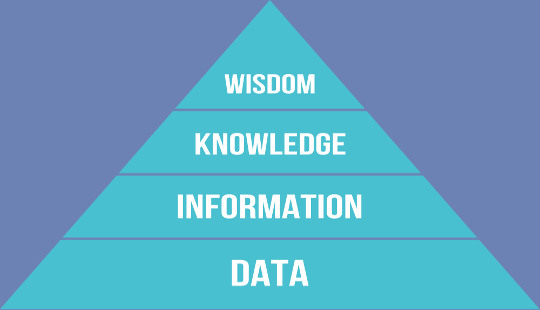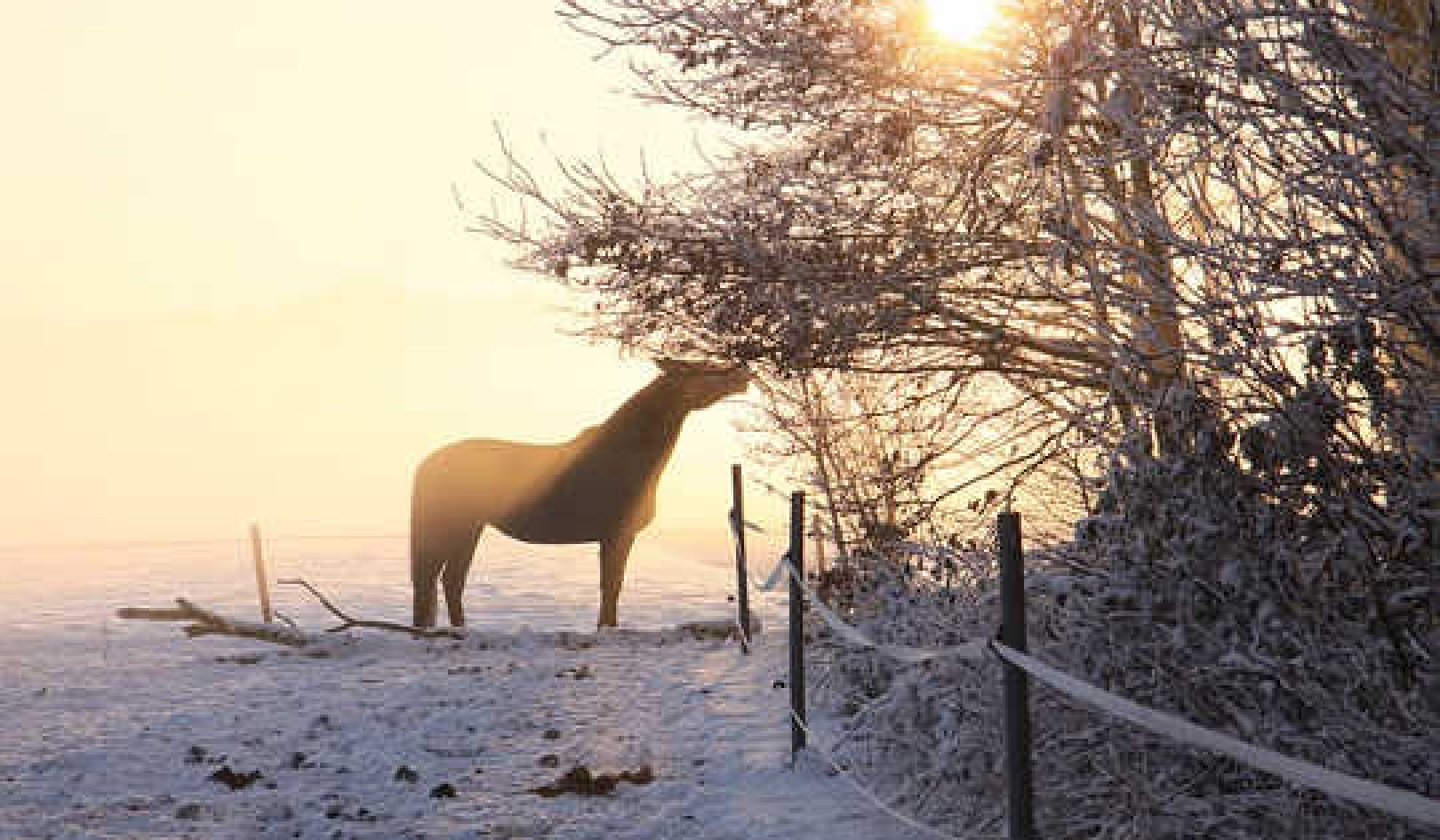
There is a difference between wisdom and knowledge. One could say that wisdom is knowledge that has been brought into one's heart and experienced as true. For wisdom, an idea or thought must be tested and investigated. We cannot gain wisdom by passively accepting what we read or by believing what another tells us.
We have all been introduced to many ideas and theories from reading books or listening to someone, but until this information has been tested in our own experience, wisdom is not possible. Wisdom requires an attention to life and a willingness to ask and experience firsthand what is true.
It is easy to notice when someone tells us something from actual experience or when it is just an idea. Ideas and knowledge are wonderful, but certain truths must be tested in our heart before they have power. Someone can tell you, for example, that what is really important in life are friends. They can really believe this, but they do not really live this truth. They are not there for friends when they need to be. You call them to talk about some difficulties you are having in your life and, after one minute of listening to you, they spend thirty minutes talking about themselves. Then afterwards they say, "Friends are so important." Though they are sincere in telling you this statement, their words only go so far because their experience of this truth has not matured.
Another person can tell you the same thing and their words have more depth. This person has seen the importance of friends and she works hard to help those that are close to her. It is not just an idea for her; it is something she actively lives.
When people speak from this place, our whole body hears their words. It is as if there is a channel between the two of us that allows us to receive not just their words, but the depth of their experience. They have gained wisdom by investigating and testing the profundity of this truth in their life. Their knowledge has been cultivated and tested, and has matured into wisdom.
What Is True?
It can be helpful to ask, what is true? What does my direct experience tell me? The Buddha said that you should not believe something just because it is written in a book, or because the person who said it is well known, or a teacher, or an elder, or anything. He said to only believe something after you have tested it in your own heart and found it to be true. Wisdom can only be attained by this type of inner experimentation and willingness to experience and see for oneself.
The Buddha said, "Those who recite many scriptures but fail to practice their teachings are like a cowherd counting another's cows." Lao-tzu speaks of the different types of knowledge when he writes, "Knowing others is intelligence, knowing yourself is true wisdom."
When I first started practicing meditation I wanted to be the one who "knew." I would utter what I thought were wise phrases to my friends hoping they would come to me for advice. I thought that by thinking certain high and deep thoughts, I could gain this esteemed position. However, I noticed that the more I tried to be wise, the less I could access wisdom.
My words would stumble out in the form of advice, leaving the person confused and uncertain. I was not interested in exploring the truth together or in sharing from my experience; I was more interested in impressing them. I thought wisdom meant knowing all the answers all the time. I did not know at the time that it required much more than that.
Wisdom Is A State of Mind
I soon saw that "trying" to be wise all the time was very unwise. I learned that wisdom did not mean "knowing" all the answers. Rather it was a state of mind, an openness of mind, that explored and investigated the truth. Wisdom did not have set answers for everything, but it had a willingness to learn.
Over time, rather than trying to resist and hide my not knowing, I have learned to allow and trust it. So if I don't know how to use a particular tool or am unsure what a word someone says means, I try (though not always successfully) to say that I do not know how something works or the meaning of a word, but I'd like to learn. Previously, I always tried to avoid such situations whenever possible.
Many people think of wisdom as a type of one-upmanship. He or she didn't know the answer, but I did. I must be smarter. They think of it as an either/or dichotomy. Either I am right or you are right. And the person who is right more is the wisest. However, wisdom has little to do with being right -- at least not the kind of right that puts someone else down. Often we try to be right not to help another person, but to show that we are better than them. We may be right about the details of what is in question -- where the store is, the capital of Oregon, the last name of a friend -- but the attitude or energy behind it is something else. Our words create more division than harmony. We were right about certain details, but not right in how we went about it.
Wisdom is different. It looks at not just the details, but at how something is said. It inquires as to what builds more harmony and union, and what creates more discord and conflict. In this attitude, no one is really right. It is a team effort in the exploration of what is true. Sometimes I have wisdom to offer, and sometimes you do. It is not a static relationship with one person on one side and the other person on the other. Rather it is a dance in which we both play a part.
Wisdom is not something one person can grab and keep for themselves. Trying to capture and hold on to it makes it immediately slip away. Wisdom is a process. It asks to be both a student and a teacher. It is a community effort.
Experiment in Truth
Take some time to reflect on the question, What is true? What does your experience tell you? What have you learned so far in this life? What have you noticed?
The answer you will receive is not always a straight answer, like X or Y. Rather the question leads to a deeper and more profound experience of the question. The answer you get is not just known intellectually, but known in your heart and body.
Keep asking the question, What do I know is true? and see where it takes you. Make a list of what you find.
Reprinted with permission of the publisher,
Adams Media Corporation. ©2001.
http://adamsonline.com
Article Source
Just Say Om!: Your Life's Journey
by Soren Gordhamer.
 Explains how Buddhist meditation can help teenagers cope with the difficulties in their daily situations, and discusses mindfulness, meditation techniques, balance, and applying the effects of meditation in everyday life.
Explains how Buddhist meditation can help teenagers cope with the difficulties in their daily situations, and discusses mindfulness, meditation techniques, balance, and applying the effects of meditation in everyday life.
About the Author
 Soren Gordhamer works with individuals and groups on living with greater mindfulness and purpose in our technology-rich age. He is founder and host of the Wisdom 2.0 Conference, and the author of Wisdom 2.0: Ancient Secrets for the Creative and Constantly Connected (HarperOne, 2009). As project director for Richard Gere's public charity, Healing the Divide, he organized The Healing through Great Difficulty conference with his Holiness, the Dalai Lama. He has taught mindfulness programs everywhere from youth in New York City juvenile halls, to trauma workers in Rwanda, teachers in Nigeria, and to staff at US technology companies. He later founded the New York City-based non-profit, The Lineage Project, which offers awareness-based practices to at-risk and incarcerated teens.
Soren Gordhamer works with individuals and groups on living with greater mindfulness and purpose in our technology-rich age. He is founder and host of the Wisdom 2.0 Conference, and the author of Wisdom 2.0: Ancient Secrets for the Creative and Constantly Connected (HarperOne, 2009). As project director for Richard Gere's public charity, Healing the Divide, he organized The Healing through Great Difficulty conference with his Holiness, the Dalai Lama. He has taught mindfulness programs everywhere from youth in New York City juvenile halls, to trauma workers in Rwanda, teachers in Nigeria, and to staff at US technology companies. He later founded the New York City-based non-profit, The Lineage Project, which offers awareness-based practices to at-risk and incarcerated teens.

























